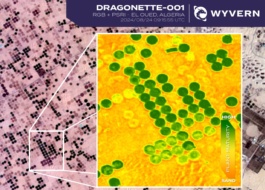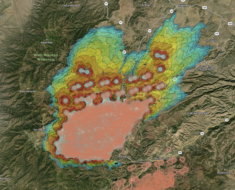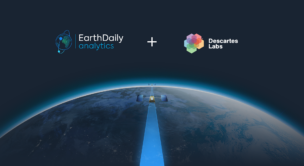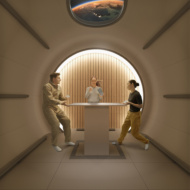Astroscale, a Japanese startup designing orbital debris removal and on-orbit servicing technology, announced Sunday that it has closed a $76M Series G round to accelerate its growth and development. The round, especially notable given the current state of private markets, brings Astroscale’s total funding to date to $376M.
The company raised the Series G entirely from new investors, including Mitsubishi Electric, Yusaku Maezawa, Mitsubishi UFJ Bank, Mitsubishi Corporation, Development Bank of Japan, and FEL Corporation.
- Mitsubishi Electric pitched in $25M and, separately, announced that it will collaborate with Astroscale to build more sustainable satellite buses.
- Yusaku Maezawa contributed $23M personally. The Japanese billionaire/space fanatic is known for being the first private citizen from Japan to visit the ISS.
- He’s also spearheading the dearMoon mission, which will take Maezawa, Steve Aoki, The Everyday Astronaut, and six additional artists/creatives on an around-the-Moon adventure on Starship.
“This investment is just another step toward…developing the technologies and toward driving the policies that make this a viable sector,” Chris Blackerby, COO of Astroscale, told Payload. “It takes time, it takes patience to get to the point of developing an entirely new ecosystem in space.”
The growing debris problem
As the world prepares to launch potentially tens of thousands of satellites into LEO in the coming decade, the need for effective space debris management is becoming increasingly obvious.
Astroscale’s approach: By building spacecraft that can dock with stray satellites and deorbit them, Astroscale believes that it can make the orbital environment safer for everyone involved.
The company launched its first demonstration mission, ELSA-d, in 2021. ELSA-d is short for End-of-Life Services. Last year, ELSA-d successfully completed a docking maneuver with a client spacecraft.
- ELSA-d lost a few thrusters in the process, but Astroscale is still planning to complete the demonstration with a controlled deorbit.
Astroscale has several debris removal demonstrations on the books with JAXA, ESA, the UK Space Agency, and multiple private firms. Astroscale intends to launch a small craft with Rocket Lab early this year to observe a spent Japanese H2-A stage (which will eventually be deorbited). The company also has the ELSA-M follow-up mission to ELSA-d slated for 2024.
And Astroscale isn’t stopping with debris removal. “We see that the technologies that we’re developing that we initially were developing for debris removal are all quite applicable to the wider range of servicing writ large,” Blackerby said.
Buddying up: Mitsubishi Electric and Astroscale will also collab on designing, building, and launching more sustainable satellite buses. They’ll ship with Astroscale-designed magnetic docking plates, so that a servicer spacecraft can easily rendezvous with spent or misbehaving satellites and send them down into Earth’s atmosphere for a fiery demise.
What’s next? With the Series G complete, Astroscale plans to ramp up R&D for its upcoming missions; grow its headcount; and scale its UK, US, Israel, and Tokyo facilities. The company has grown 60% to 400+ employees since its $109M Series F in 2021. Blackerby says he is expecting the company to continue to grow significantly.




